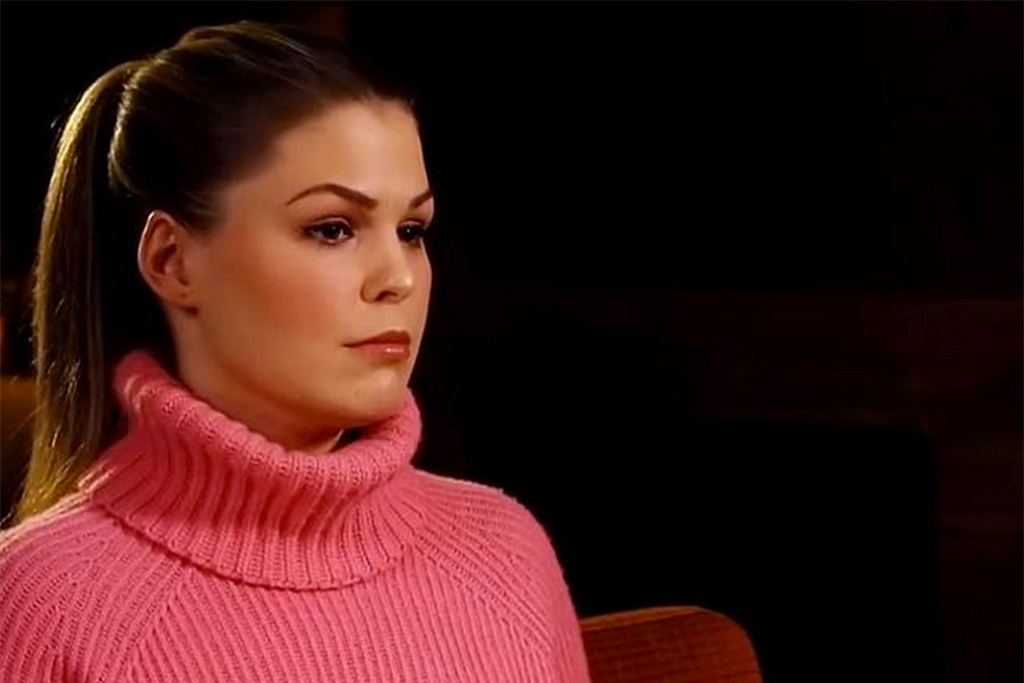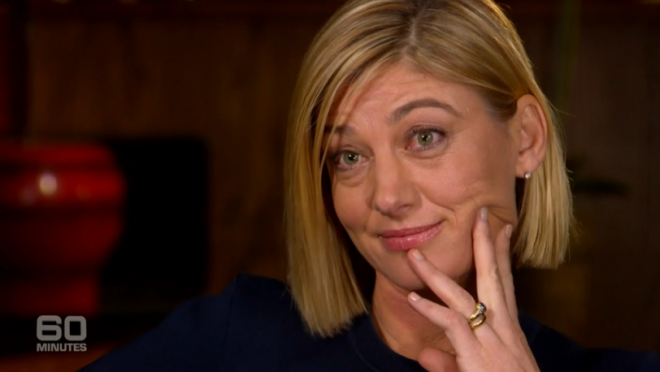60 Minutes’ Interview With Belle Gibson Was A Missed Opportunity
The fight against the disgraced wellness blogger is all about morality and principle, but that same standard should also apply to its reporting.

At this point, you might be forgiven for thinking the elasticity of journalistic integrity has been stretched so far it’s practically boundless. With your feed flooded with bite-sized chunks of clickbait (You Think These Headlines Are Innocent But You Won’t Believe How They’re Killing Journalism!) and lists (Top 20 Reasons To Stop Reading Proper Articles), it’s easy to forget what traditional journalism even looks like.
This is an issue that extends to all forms of media too, not just the written word. With the burden of a 24-hour news cycle, the stakes are higher for television networks whose morning and evening current affairs hours are being usurped by the ubiquity of online news. Now, one of the medium’s last remaining strengths lies in its ability to promise viewers an exclusive story. Something huge, like Tara Brown’s 30-minute interview with disgraced wellness blogger Belle Gibson on 60 Minutes last Sunday.
Gibson is of course infamous now for her false claims of being diagnosed with — and cured from — more than one type of cancer. The 23-year-old said she died during a medical procedure. She claimed medicine failed her, but Gerson therapy, natural remedies and a healthy diet brought a cure. Not only has this all turned out to be untrue, but we now know that Gibson had profited off her so-called illnesses and failed to donate profits to charities as first claimed. She lit up Instagram with a lifestyle lie, calling on her fans for support, and their money when she released a wellness app and a book, The Whole Pantry.
With all this, it’s no surprise that the interview was making headlines before it aired. This attention even led some to query the integrity of Channel Nine that may have paid — we still don’t know if Gibson received a fee — a woman who duped thousands and profited off a lie. But for a story all about ethics and principle, did 60 Minutes hold up to their own?
–
What Was The Aim Of All This?
There’s no murkiness in Gibson’s case: it was fraud, on several levels. If the interview was to deliver an exploration of this behaviour, her subsequent seeming lack of remorse, and her inability to explain just what the hell she was doing, we may have had some worthwhile viewing. But pretty early on, it was clear Gibson’s stammering and uncertain responses to Brown’s grilling were neither insightful nor newsworthy.
Why is 60 minutes giving Belle Gibson a platform. I'm not making a cute Q&A joke here, I really do mean it – why are they doing that.
— Ben Jenkins (@bencjenkins) June 28, 2015
As a result we were treated to an interviewer rolling her eyes and scolding a stuttering and confused-looking subject. Gibson was attempting to fluff her way through, and she came across as unprepared. In lieu of clear explanations, she zig-zagged her way through a maze of confusion and wilted under Brown’s merciless roasting. It was a train-wreck of Kafkaesque proportions.
At one point Gibson pins her diagnosis on an immunologist she now claims was a quack (she has previously talked of doctors diagnosing her), then piles on elaborate lies about why she stopped chemotherapy — the side effects; natural therapies; she got pregnant. But as she also tells Brown, she “believed” she was unwell, and that the therapies she was allegedly taking were treating a condition she “believed” she had. Getting an idea of the problem here?
As psychologist Michael Carr-Gregg has since told The Daily Telegraph, “I haven’t spoken to [Gibson] so I can’t make a diagnosis, but I don’t think you don’t have to be a psychologist to figure out that she’s not well.” Whether this claim has substance or not, as a journalist, it’s your duty to report, not exploit. This was not an editorial, or an op-ed designed to express a personal opinion; this interview was meant to offer heavy-duty investigative reporting. Noble as Brown’s intention may have been, this episode of 60 Minutes quickly descended into the tabloid-like scammer stories that other current affairs shows trade in.
–
A Missed Opportunity
This interview was a great chance to uncover and reveal things we didn’t know about Belle Gibson and her fraudulence. She could have easily used this moment to show some form of repentance, or make people who had been duped by her lies understand the reasoning behind it all. But it’s not all her fault: it’s possible Brown’s persistently aggressive approach prevented Gibson from settling into a comfortable enough state to get real for a minute.
“I’m trying to be open to what you’re saying, but you are just muddying the waters with every answer,” Brown tells a bewildered, misty-eyed Gibson. “How can we believe anything you say right now?” she says, persistently reciting Gibson her own lies. “Belle, Belle, Belle, Belle…” she says in frustration.
We didn’t get a considered, impartial examination; we got Brown expressing her disgust towards her, like a lawyer jollying for the prosecution. She played to the screaming crowd, thirsty for Gibson’s blood. It was the principal sitting the bad student down and admonishing her in front of the entire school, and Brown seemed to relish in it. Long judgmental gazes spoke of her disgust on behalf of Gibson’s victims. Begrudging sighs suggested she’d been lumped with the troublesome student, once again. She talks down to her, a little smug, hand on chin.

This was not Brown’s task. Her job as a journalist in this instance was to ask the right questions, and let Gibson fall on her own sword if that was to be the outcome. Brown practically shoved it in her from the start.
–
Where To From Here?
Since the interview aired, several questions have been raised. Among them: was 60 Minutes exploiting someone who appears to be mentally unstable? Should they have paid her a sum for her embarrassment if they indeed did pay her at all? Did they offer Gibson access to any psychological support afterwards? What did this actually achieve?
The latter is really the most important part of all this. From my viewpoint, I knew nothing more at the end that I didn’t know at the start. Moreover, Brown’s posturing editorialised the interview, stripping it of any credibility. Her inability to remain as impartial as possible failed her as interviewer and betrayed Gibson as her subject. It’s one thing to be reactive to the person you’re interviewing and it’s another thing entirely to be exploitative; an angle is necessary in reporting but personal judgment has no place in it. The journalist is not the story.
Given the evidence is stacked so heavily against Gibson, and she appears unwilling or unable to defend herself, it would be both more interesting and more helpful to ask broader questions: why do wellness warriors have so much power to dupe people with unverified claims? And, as Brown herself queries in ‘Extra Minutes’ (an interview outside of the segment), “What motivates somebody to tell such lies?”
–
Amal Awad is a Sydney-based freelancer writer, journalist and author of three books. She sometimes writes here and tweets here.